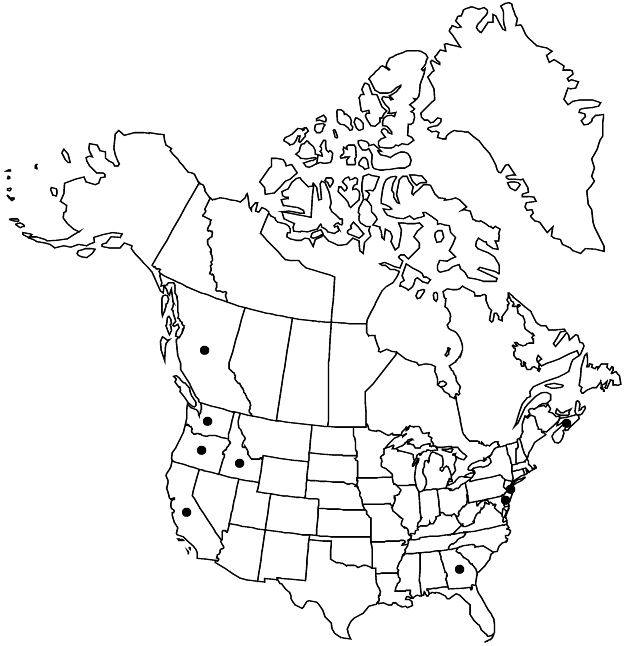Difference between revisions of "Aphanes arvensis"
Sp. Pl. 1: 123. 1753.
FNA>Volume Importer |
FNA>Volume Importer |
Revision as of 20:37, 24 September 2019
Plants slender or relatively robust, densely hairy throughout, hairs, at least some, more than 1 mm. Stems ± erect or spreading, usually branched from base, 2–20(–30) cm. Leaves 6–16 mm; stipules overlapping, 4–10 mm, divided 1/3–1/2 their length, lobes 8–12, on distal nodes ± triangular, length 1–2(–4) times as long as width; petiole free from stipules in proximal and distal leaves; blade 4–10 mm, divided into 3–4 segments, each segment 3–4(–5)-lobed. Inflorescences opposing leaves, dense, flowers not completely hidden. Pedicels less than 1 mm. Flowers 1.3–1.8 × 0.8–1 mm, 1.5–2.5 mm in fruit; epicalyx bractlets 0–0.1 mm; hypanthium ovoid to ellipsoid, contracted at apex, 8-ribbed, spreading-erect hairy in proximal 2/3, glabrescent in distal 1/3; sepals ± spreading to erect, 0.4–0.7 mm, long-ciliate. Fruits (1.6–)1.8–2.3(–2.5) mm. 2n = 48.
Phenology: Flowering Apr–May.
Habitat: Fields, usually on sandy soil, mossy and grassy sites, moist shade, gravelly roadsides, shady, bare patches in lawns, shallow soil pockets on rocky seashores, meadows, hillsides
Elevation: 0–150 m
Distribution

B.C., N.S., Calif., Del., Ga., Idaho, N.J., Oreg., Wash., Europe, sw Asia, n Africa, introduced also in South America (Chile), Pacific Islands (New Zealand), Australia.
Discussion
Selected References
None.